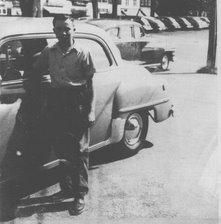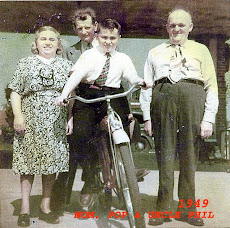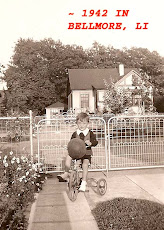The War of Northern Aggression, the War Between the States, the War to Preserve the Union, or the Recent Unpleasantness are terms used, depending upon your perspective, to refer to this war. Being a newcomer to South Carolina, I decided that I wanted to know more about what happened here almost 145 years ago. The more I learned, the more interesting this part of our history became. Did Sherman really burn down all those buildings in Beaufort and Bluffton? Did the Confederacy ever have a chance to win? What kind of men were Lee and Grant? What was it like for Lincoln and Davis to govern during these tumultuous years?
Like many others interested in studying the Civil War, I joined the Lowcountry Civil War Round Table, impressed with their organizational philosophy: the War was the defining moment in the history of our country. It established that we would henceforth be one nation, indivisible. With nearly 400 members from the local area, the Round Table provides a form for hosting renowned Civil War historians and professional impersonators (e.g., General Robert E. Lee) at meetings held locally in Bluffton.
Through the Round Table, I became aware of The Blue and Gray Education Society (BGES) , a national organization dedicated to our further understanding of the War Between the States by interpreting and preserving Civil War battlefields, conducting high quality seminars, promoting and publishing scholarly research, and by facilitating worthy educational endeavors. Each spring, they hold their Atlantic Civil War Symposium on Hilton Head Island. To understand a battle, you have to walk the battlefield; you need to see the actual terrain where the battles took place to get an understanding of the difficulties faced by both the troops and the generals who led them. This upon the heels of a classroom lecture or reading one of the many good books available is really what makes history come alive.

Walt at a BGES battlefield seminar, Shiloh, MS.
The University of South Carolina at Beaufort offers many excellent courses throughout the year on the Civil War. One of the benefits that as a senior I have taken advantage of is the ability to audit a course at a reduced rate. A great fringe benefit is enjoying the dialog with the young students, for some of whom, Civil War history is their recent unpleasantness. One of my courses was about the battle at Chattanooga, Tennessee which was held under siege by Confederate positions on Lookout Mountain. As seen in the accompanying photo of the Confederate cannon, my visit there helped me greatly understand the remarkable heights from which they commanded the city and the Union forces trapped there. Even more remarkable was the fact that the Union Army led by U.S. Grant stormed this position from below and managed to dislodge the Confederates.

Confederate cannon on Lookout Mountain.
The subject of the Civil War through my participation in educational organizations and with the many battlefield and museums within a day’s ride or two is for me an interesting and exciting hobby making history come alive.
To understand the challenges President Lincoln faced in this 1864 reelection, the reelection of President George Bush offered to me some insight: both took place amid serious dissent on the home front in a time of war. Bush faced similar criticism that Lincoln endured in 1864. The Patriot Act, supported by Bush, is challenged for taking away some liberties; Lincoln faced similar criticisms for his suspension of the writ of habeas corpus, granting sweeping powers to law enforcement and imprisonment of Southern spies and sympathizers without trial. Bush and Lincoln were criticized for their lack of intellect, large number of casualties and a mismanaged war effort, and endured opposition from Europe. While both were in the military, Lincoln served for less than three months in what could be called the National Guard of that era; Bush’s National Guard service was hotly debated. Bush faced an opponent eerily similar to McClellan. Like Kerry, McClellan was a war hero in a predominantly anti-war party and was also highly criticized for his military record by Republican supporters. Both were generally adored by the troops under their command. McClellan grew up as a member of the Philadelphia aristocracy while Kerry was a member of the Boston elite. Both flip-flopped on major issues. Whoever succeeds Bush needs to be better than Lincoln's successor.
As I get more involved with Civil War history, I find that to really understand why it occurred, you need to study our history from the establishment of the first colonies of Spain, France and England, not only in the U.S. but also in South America and the West Indies. The period after the Civil War merits study to understand the aftermath of this bloody struggle and its influence on the development of our nation.
History is a never ending sequence of people and events; starting with the Civil War and going back and forth in time is an interesting, stimulating and rewarding way to understand as much as possible about what took place here 145 years ago.
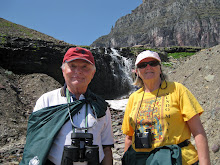



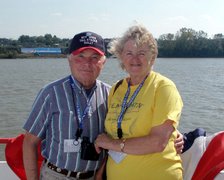



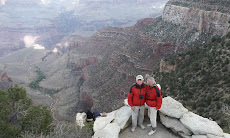
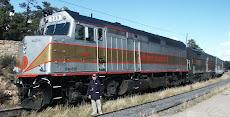




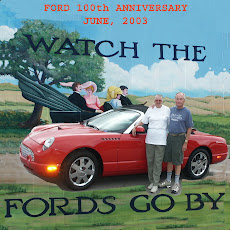

.jpg)







